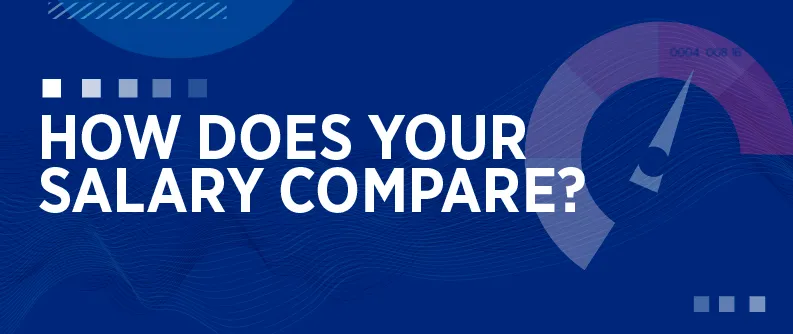Referees available on request – a guide to references

Job references are an inevitable part of applying for a new job. They are a valuable tool in the recruitment process to validate your skills and competencies. But there’s a correct way to supply references. Here, we cover six key points you need to know about providing job references.
Are job references still required?
Firstly though, it’s important to note that despite the growing popularity of LinkedIn recommendations, traditional references remain one of the most credible endorsements of your skills, experience and suitability for a job. After all, online recommendations are great for showing the skills you are best known for, but they are not a substitute for the role references play to hiring managers.
The good news about being asked by a prospective employer to provide references is that this is a strong indication that your interview has gone well, and that the hiring manager is seriously considering you as a candidate.
However, the reality is that even after a successful interview, your application could still fall down at the last hurdle if your references are less than complimentary. It’s therefore extremely important that you leave all employers on good terms so that you can still use them as a reference in the future.
6 tips for choosing the best job references
If you are wondering what makes a good reference for a job and how to secure one for your next application, there are a few points to consider.
1. What information will the referee need to supply?
A hiring manager contacts referees to confirm specific details, such as your responsibilities while with that employer, your performance, your attendance, the length of your employment and your reasons for leaving. Given this, the referees that recruiters and employers value the most are those people you reported to directly. Former managers can speak about how you used your skills and experience to add value to their organisation.
Former managers can also speak to your personal attributes such as reliability, adaptability, time management, teamwork and your soft skills.
2. Who should you choose as your referees?
Typically, at the end of a second interview, or just before or immediately after a job offer has been made verbally, you will be asked to provide references. Depending on the timing, you may or may not want to ask your current employer to be a reference. You may, instead, need to ask a previous direct manager to provide a reference. The key is to provide the name of a person who is best able to deal with the reference request adequately and in a timely manner.
Bear in mind that most hiring managers request at least two references, which understandably can be tricky for some people, especially if you have a limited work history. If this is the case, can a university tutor, business contact, manager of a work experience placement or a previous customer act as a reference?
In general, the more senior the referee, and the more recently you worked with them, the greater the perceived value of the reference will be. Steer clear of personal references from family, friends or family friends, as these are generally disregarded.
3. Asking for a reference
Once you have identified suitable referees, you then need to know how to ask for a reference. If you are unable to meet in person, schedule a video or phone call to make your request in a more personal manner – don’t simply send an email.
Make sure you arrange this meeting before you start applying for jobs. A potential reference may not be able to meet you for a week and a hiring manager will not be impressed if you have not organised your references in advance.
During your meeting, briefly update them on your work and achievements since you last met and how you feel you are now ready for your next professional job opportunity. Share a copy of your CV, too.
Then ask if they can act as your referee – but do so in a way that doesn’t put any pressure on them. For example, you could ask, “During my upcoming job search, would you be comfortable acting as a reference?” Pay close attention to their body language and if you note any hesitation at your request, politely withdraw it and move on to the next most suitable potential reference.
If they do agree to act as a referee, reassure them that you will protect their privacy by including the phrase "references available upon request" on your resume, rather than including their contact information in every job application. We provide more detail on this in the next point.
4. References available upon request
For the most part, you will not be expected to provide full references on your CV. Instead, we recommend simply stating, “References available upon request” at the end of the document. If you include references available upon request in your resume, or one of any number of similar phrases, you show that you have relevant referees available, but you have control over when they will be contacted.
Furthermore, by writing the phrase references available instead of including their contact details in every resume you send, you maintain your referees’ privacy until a specific employer requests their contact information.
So, our advice is to put references available at the bottom of the page, rather than taking up valuable real estate space on your resume by listing your referees’ full details. Just make sure you do genuinely have suitable references ready to supply when asked.
5. Keep in touch with your referees
Once a person agrees to be your referee, keep in touch with them. After all, they may also move on from the organisation where you both once worked. So, make sure you connect with them on LinkedIn to remain up-to-date with any career changes they make. If you don’t look for their contact details until the moment you are asked for them, you’ll only cause yourself unnecessary stress.
Furthermore, keeping in touch with such a valued contact can provide you with other benefits. For example, if you maintain a strong professional relationship with each referee, you have a trusted person you can turn to for career advice, to review your CV or cover letter, to discuss available jobs, to talk through your career objective, or to air any other career related issues with. Many job candidates find such advice invaluable.
6. Referee etiquette
There’s also such a thing as referee etiquette that you should follow when job hunting. It may have been several years since you last looked for a job, so you should regularly contact your referees to update them on your career and ask if they are still happy to act as your reference. Ensure you have their consent to do this before providing their contact details to a recruiter or hiring manager.
Then, once you know you have been shortlisted for a job or a recruiter asks you to supply referees, let them know they will soon be contacted and by whom. If you don’t know the specific person they will hear from, let them know the name of the recruiter or employer.
It’s also helpful to provide your referee with some detail about the job and the key skills, qualifications and attributes the employer is seeking. You might also outline some examples of your work and achievements from when you reported to your referee that you shared in the job interview. While you don’t want to tell your referees what to say, if several years have passed since you both worked together, jogging their memory could be helpful to them as well as you.
Lastly, once you have signed your new employment contract, send your referees a short thank you note to show your gratitude.
A final thought
Providing full and insightful references is an important part of the recruitment process, so make sure you’ve given yours adequate consideration. Don’t forget to forewarn your referees about your job search and keep your relationships current – after all, you never know when you may want to call on them again.
Search for jobs
Interview tips
Responding to "Tell me about yourself"
Responding to "Fun fact about yourself"
How to get time off for an interview
6 ways to show you want the job
Interview tips for contract roles
Discussing salary expectations
How to ace a panel job interview
How to answer behavioural questions
Competency based interview questions
Situational job interview questions
How to prepare for a job interview
Questions to ask the interviewer
Answering "Why do you want to work here?"
Signs your interview went well
Second job interview - what to expect
Why do you want to leave your current job?
How to answer difficult interview questions
What to wear to a job interview
Check your salary
Find out if you are earning the salary you deserve with the Hays Salary Checker.

